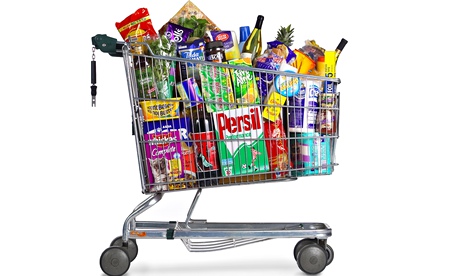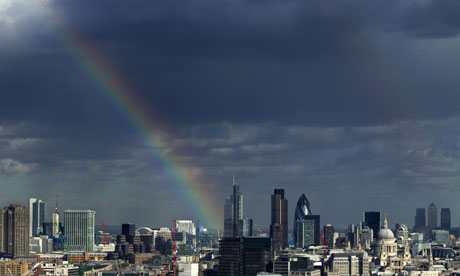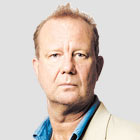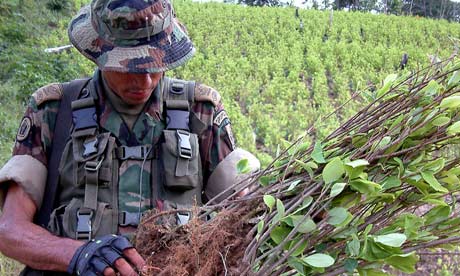'Saudi Arabia is acting directly against the interests of half the cartel and is running Opec over a cliff,' says RBC
Ambrose Evans-Pritchard in the Telegraph
The rumblings of revolt against Saudi Arabia and the Opec Gulf states are growing louder as half a trillion dollars goes up in smoke, and each month that goes by fails to bring about the long-awaited killer blow against the US shale industry.
"Saudi Arabia is acting directly against the interests of half the cartel and is running Opec over a cliff"
Helima Croft, RBC Capital Markets
Algeria's former energy minister, Nordine Aït-Laoussine, says the time has come to consider suspending his country's Opec membership if the cartel is unwilling to defend oil prices and merely serves as the tool of a Saudi regime pursuing its own self-interest. "Why remain in an organisation that no longer serves any purpose?" he asked.
Saudi Arabia can, of course, do whatever it wants at the Opec summit in Vienna on December 4. As the cartel hegemon, it can continue to flood the global market with crude oil and hold prices below $50.
It can ignore desperate pleas from Venezuela, Ecuador and Algeria, among others, for concerted cuts in output in order to soak the world glut of 2m barrels a day, and lift prices to around $75. But to do so is to violate the Opec charter safeguarding the welfare of all member states.
"Saudi Arabia is acting directly against the interests of half the cartel and is running Opec over a cliff. There could be a total blow-out in Vienna," said Helima Croft, a former oil analyst at the US Central Intelligence Agency and now at RBC Capital Markets.
The Saudis need Opec. It is the instrument through which they leverage their global power and influence, much as Germany attains world rank through the amplification effect of the EU.
The 29-year-old deputy crown prince now running Saudi Arabia, Mohammad bin Salman, has to tread with care. He may have inherited the steel will and vaulting ambitions of his grandfather, the terrifying Ibn Saud, but he has ruffled many feathers and cannot lightly detonate a crisis within Opec just months after entangling his country in a calamitous war in Yemen. "It would fuel discontent in the Kingdom and play to the sense that they don't know what they are doing," she said.
"We are feeling the pain and we’re taking it like a God-driven crisis"
Mohammed Bin Hamad Al Rumhy, Oman's oil minister
The International Energy Agency (IEA) estimates that the oil price crash has cut Opec revenues from $1 trillion a year to $550bn, setting off a fiscal crisis that has already been going on long enough to mutate into a bigger geostrategic crisis.
Mohammed Bin Hamad Al Rumhy, Oman's (non-Opec) oil minister, said the Saudi bloc has blundered into a trap of their own making - a view shared by many within Saudi Arabia itself.
“If you have 1m barrels a day extra in the market, you just destroy the market. We are feeling the pain and we’re taking it like a God-driven crisis. Sorry, I don’t buy this, I think we’ve created it ourselves,” he said.
The Saudis tell us with a straight face that they are letting the market set prices, a claim that brings a wry smile to energy veterans. One might legitimately suspect that they will revert to cartel practices when they have smashed their rivals, if they succeed in doing so.
One might also suspect that part of their game is to check the advance of solar and wind power in a last-ditch effort to stop the renewable juggernaut and win another reprieve for the status quo. If so, they are too late. That error was made five or six years ago when they allowed oil prices to stay above $100 for too long. But Opec can throw sand in the wheels.
At root is a failure to grasp how quickly the ground has already shifted from under the feet of the petro-rentier regimes. Opec forecasts that oil demand will keep rising relentlessly, adding 21m barrels of oil per day (b/d) to 111m by 2040 as if nothing had changed. They have their heads in the sand.
The climate pledges made for the COP21 summit in Paris by the US, China and India - to name a few - imply a radical shift in the global energy landscape. Subsequent deals by 2025 may well bring a "two degree world" within sight.
The IEA says oil demand will be just 103m b/d in 2040 even under modest carbon curbs. It would collapse to 83.4m b/d if global leaders grasp the nettle. My own view is that it will happen by natural market forces.
The next leap foward in technology is going to be in energy storage. Teams of scientists at Harvard, MIT and the world's elite universities are in a race to slash the cost of batteries - big and small - and overcome the curse of intermittency for wind and solar.
A team in Cambridge says it has cracked the technology for lithium-air batteries that cut costs by four-fifths and enable car journeys of hundreds of miles on a single charge. By the time we reach 2040, it is a fair bet the only petrol cars still on the road will be relics, if they can find fuel at all.
"Everything will be electrified. The internal combustion engine is a dead-end. We all know that, and the car companies ought to know that," said one official handling the COP21 talks.
Opec might be better advised to target prices of $75 to $80 and maximize revenues while it still can, taking advantage of a last window to break reliance on energy and diversify their economies.
The current war of attrition against shale is a hard slog. US output has dropped by 500,000 b/d since April, but the fall in October slowed to 40,000 b/d. Total production of 9.1m b/d is roughly where it was a year ago when the price war began.
"The expectation that a swift tailing-off in tight oil would lead to a rapid rebalancing in the market has proved to be misplaced," said the IEA. Costs are plummeting as rig fees drop and drilling time is slashed.
There is a time-lag effect. Shale cannot keep switching to high-yielding wells forever. Their hedging contracts are running out. The US energy departmentexpects a further erosion of 600,000 b/d next year, but this is not a collapse.
By then Opec will have foregone another half trillion dollars. "What is winning supposed to look like for the Saudis? Can they really endure another year of this?" said Ms Croft.
Opec can certainly bankrupt high-debt frackers but this does not shut down US shale in any meaningful way. The infrastructure and technology will remain. Stronger players will move in. Output will bounce back as soon as oil nears $60.
Shale frackers will respond with lightning speed to any rebound and create a permanent headwind for Opec over years to come, or a sort of "whack-a-mole" effect, contrary to warnings by the IEA this week that Mid-East producers may regain their 1970s stranglehold once rivals are cleared out.
What is clear is that the Opec squeeze has killed off $200bn of upstream oil investment, mostly in offshore projects, Canadian oil sands and Arctic ventures. That will cut oil output in the distant future, but it is a different story.
Saudi Arabia has certainly regained market share, but the cost is causing many in Riyadh to ask whether the brash new team in power has thought through the trade-off. While the Kingdom has deep pockets, they are not limitless. Kuwait, Qatar and Abu Dhabi all have foreign reserves that are three higher per capita.
It has been downgraded to A+ by Standard & Poor's and has a budget deficit of $100bn a year, forcing it to burn through reserves at a commensurate pace and now to tap the global bond market.
Austerity has finally arrived, a nasty shock that was not in the original plan. A confidential order from King Salman - marked "highly urgent" - has frozen new hiring by the state, stopped property contracts and purchases of cars, and halted a long list of projects. The Kingdom will have to slim down the edifice of subsidies and social patronage that keeps the lid on protest.
It is far from clear whether Saudi Arabia can continue to prop up allies in the region and bankroll Egypt, already struggling to defeat Isil forces in the Sinai. An Isil cell captured - and beheaded - a Croatian engineer on the outskirts of Cairo in August, even before the suspected bombing of a Russian airline this month.
The Isil brand has established a front in Libya and has launched attacks in Algeria, where the old regime is fraying, and oil and gas revenues fund the vitally-needed social welfare net.
Iraq is pumping oil a record pace but it is nevertheless spiraling into economic crisis, with a budget deficit of 23pc of GDP. Public sector wages are to be cut. The austerity budget for 2016 - based on $45 oil, down from $80 last year - has set off a political storm.
The government has slashed funding for the "Popular Mobilization" militia fighting Isil. "The Iraqi state faces a grave challenge. The budget crisis makes the status quo intractable," says Patrick Martin from the Institute for the Study of War.
Helima Croft says Isil is now operating close to Iraq's oil facilities near Basra, detonating a car bomb at a market in Zubayr last month. They clearly have the ability to attack energy targets, and have an incentive to do so since oil production within their Caliphate heartland is their main source of income.
Al Qaeda in the Islamic Maghreb showed it could launch a devastating surprise when it crossed into the Sahara two years ago and seized the Amenas gas facility in Algeria, killing 39 foreign hostages. Variants of Isil can strike anywhere they find a weak link.
"We remain concerned that they may eventually set their sights on a major oil facility. These are obvious targets of choice, and none of this geopolitical risk is priced into the market," she said.
Saudi Arabia itself is vulnerable. There have been five Isil-linked terrorist acts on Saudi soil since May. They include an attack on a security facility near the giant oil installation at Abqaiq, where clusters of pipelines offer the most inviting sabotage target in the petroleum world and where the aggrieved Shia minority sit on the Kingdom's oil reserves.
It would be a macabre irony if Saudi Arabia's high-risk oil strategy so enflamed a region already in the grip of four civil wars that the Kingdom was hoisted by its own petard. That would certainly clear the global glut of crude oil.











